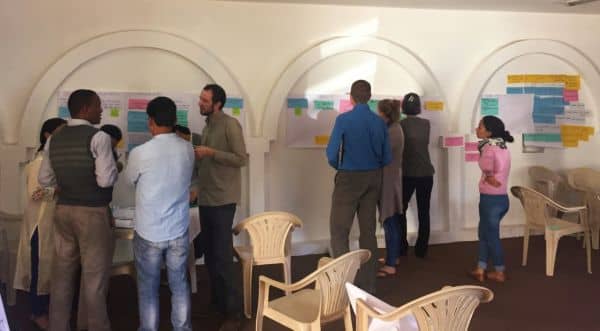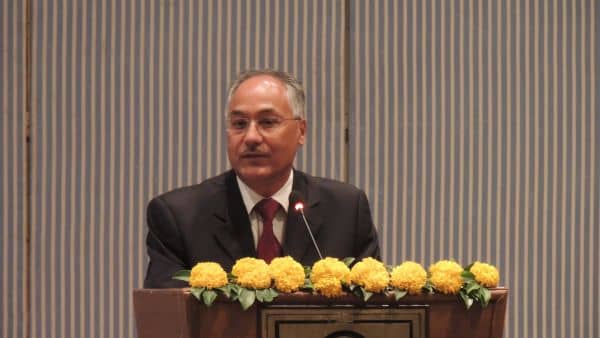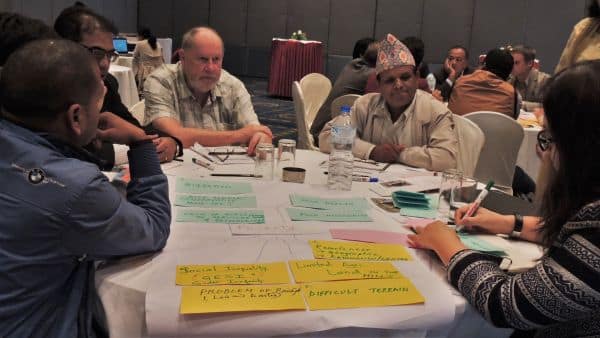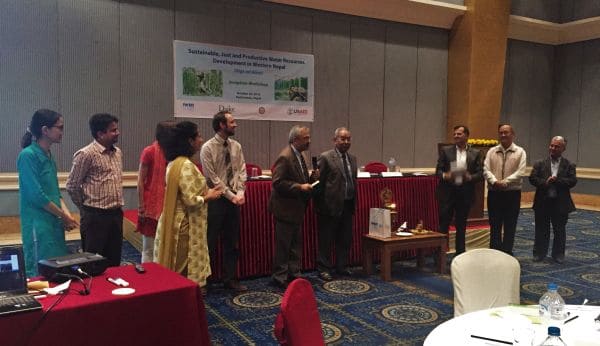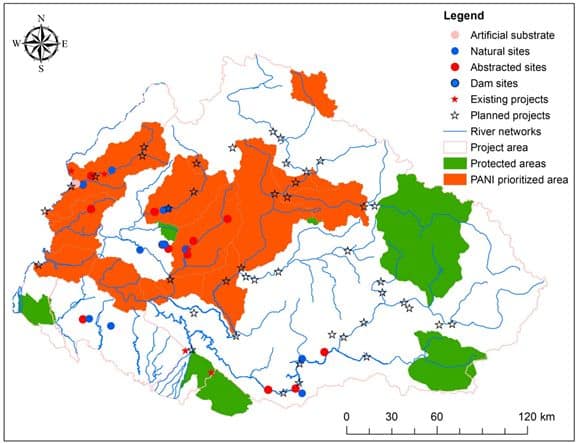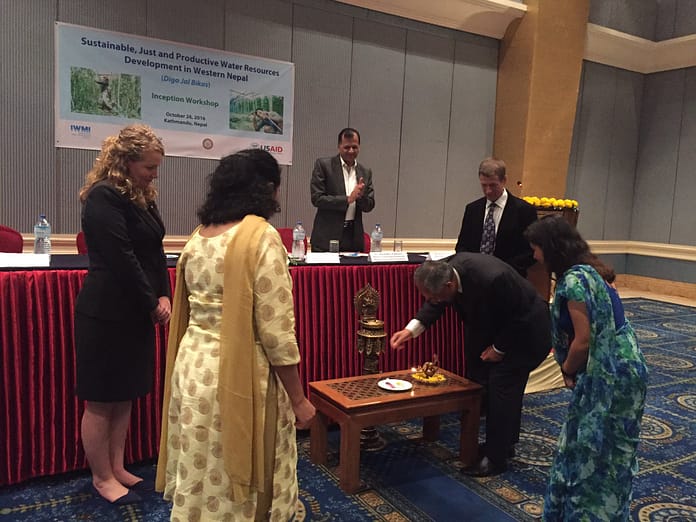The Nepal Office of the International Water Management Institute (IWMI) organized an inception workshop to formally launch a new project titled Sustainable, just and productive water resources development in western Nepal, funded by the United States Agency for International Development (USAID) and nicknamed “Digo Jal Bikas”, which translates to “Sustainable Water Project”. The workshop was held on October 26, 2016, in Kathmandu, Nepal, and was preceded by an internal meeting, where research goal crossovers were elucidated and crucial stakeholders were identified for each of the work packages of the project.
Activities on the first day of the internal meeting included mapping of networks and discussing methods for consistent monitoring and evaluation of project progress. The second day focused on the logistical framework of the project, by leading researchers through an output timeline and conducting a session on the ‘theory of change’, which illuminates the necessary steps between desired outcomes. Organizing this comprehensive planning session early on in the project increased the likelihood of developing effective and sustainable impacts on the ground.
At the inception workshop, the project was inaugurated by the Chief Guest, Dr. Prabhu Budhathoki, Member, National Planning Commission. “In Nepal, water is the basis of our development,” said Budhathoki, who described why Digo Jal Bikas was unique among water resource projects. Digo Jal Bikas covers water production, ecological concerns and impacts on the community, “whereas most projects focus only on one of these three features,” Budhathoki explained. Budhathoki also emphasized the importance of international organizations building up local capacities in order to ensure long-term project sustainability.
In the morning session, IWMI researchers and partners from both Kathmandu University and Duke University presented the work package details of the project, which included the development of hydro-economic models, calculation of necessary environmental flows and consideration of gender dynamics. The afternoon session of the workshop focused on stakeholder dialogues. Luna Bharati (Principal Researcher – Hydrology and Water Resources, IWMI, and Project Leader) and Farah Ahmed (Coordinator for Research into Impact – Asia, IWMI) facilitated a ‘problem tree analysis’ exercise, which generated cross-disciplinary insights into impacts and potential solutions to western Nepal’s most pressing water development problems. In addition to introducing government officials, local practitioners, donors and partner nongovernmental organizations (NGOs) to the goals of the project, the team from IWMI also received valuable feedback from key stakeholders which will help to explore the opportunities and challenges facing the project.
The multi-country research team will now commence its research with the understanding that, “Working on water futures is especially exciting in Nepal because water resources development is still in its infancy, making it a critical time to assess any basin-level development through the perspective of river health, economic productivity, social equity and sustainability,” as stated by Bharati.
Launch of a new book on the Ganges River Basin
The workshop also served as an occasion to launch a new book on The Ganges River Basin, which showcases the work of IWMI researchers, and other authors from Nepal, India and Bangladesh. The book launch was documented by local media, and included interviews with Luna Bharati (one of the editors of the book) and David Wiberg (Theme Leader – Water Futures, IWMI), which were telecast on local Nepali television. Prachanda Pradhan, patron, Farmer-Managed Irrigation Systems Promotion Trust and co-author of a chapter in the book, thanked Luna for her “Herculean task” in organizing the publication of the book.
Project Website: http://swrfwn.iwmi.org
Ganges River book: http://www.iwmi.org/2016/10/new-insights-into-the-ganges-river-basin


